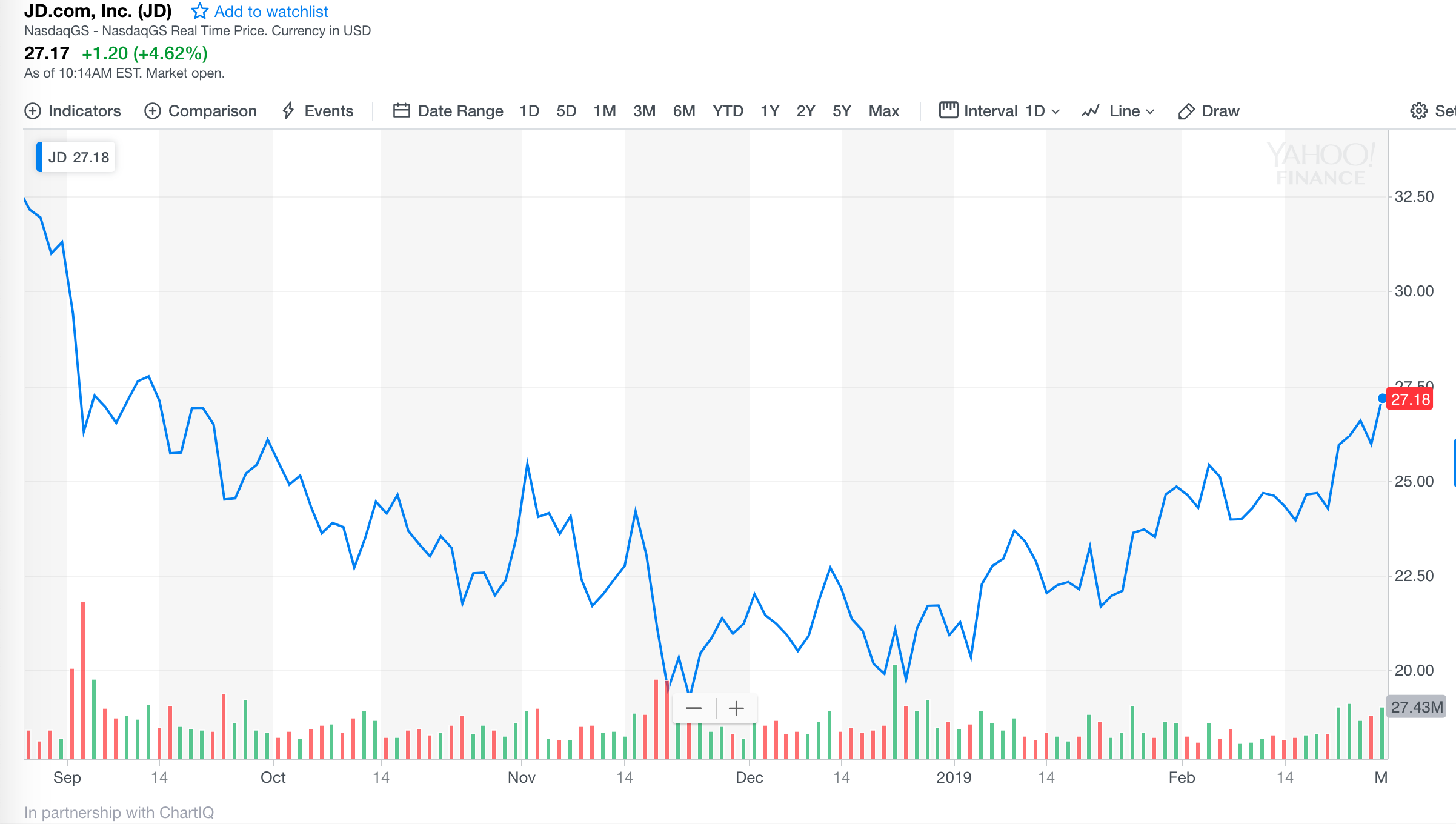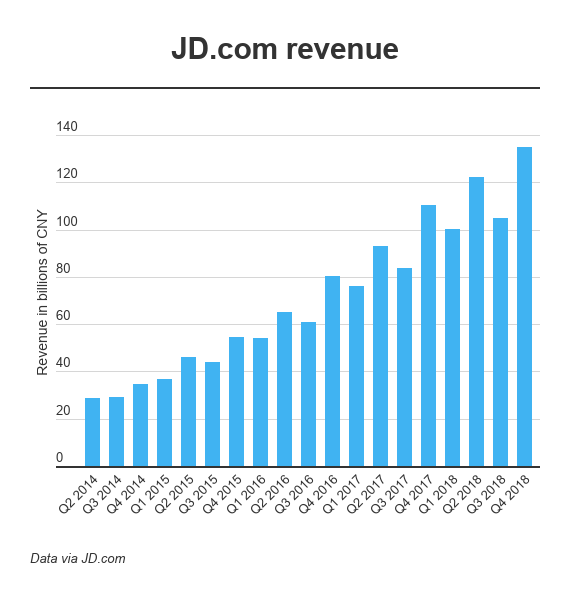Shares of JD.com, the Chinese e-commerce service that rivals Alibaba, are on the rise today after the online retailer announced better than expected results for Q4 2018, bucking uncertainty around tech companies in China.
The company reported net revenue of RMB 134.8 billion ($219.6 billion) for the final quarter of last year. Despite representing the slowest growth rate year-on-year since JD went public five years ago (22.3 percent), the figure beat analyst predictions of $19.149 billion. JD.com also beat on earnings per share.
That combination saw its Nasdaq share price rise by as much as 14 percent in pre-market trading, Reuters reports. The stock is up around five percent at the time of writing, according to Yahoo Finance data.

JD.com went public on the Nasdaq in 2014
Chinese startups are weathering challenging economics in the country. Apple recently cut its quarterly revenue forecast on account of China’s slowdown, while domestic Chinese tech companies have gone further and cut costs.
Some of those include Didi laying off 15 percent of its staff and NetEase making reductions across multiple units, while JD.com itself is reportedly parting with 10 percent of its management team as part of downsizing.

JD.com’s revenue growth reached an all-time low as a public company in Q4 2018
Against that backdrop, beating expectations was enough to trigger investor interest despite the slowing growth of JD.com’s business. The final quarter of the year is typically its most lucrative in terms of revenue, thanks to the Singles’ Day shopping festival. That said, the company carded an overall quarterly net loss of RMB 4.8 billion, or $700 million, in Q4.
JD.com’s annual performance saw revenue rise 27.5 percent in 2018 to reach RMB 462.0 billion ($67.2 billion) with a loss of RMB 2.5 billion ($400 million). In 2017, the business eked out a net income of RMB 116.8 million, which converted to $18 million at the time.
On the technology side, JD.com has invested heavily in drones, unmanned delivery and automated warehouses, with a preference to play the “long-game” on cutting-edge tech over making short-term investment spurts.
However, it has been plagued by scandal after CEO Richard Liu was arrested in the U.S. on suspicion of alleged sexual misconduct. Ultimately, Liu was not charged after authorities admitted that it was not possible to prove beyond a reasonable doubt the charges brought against him.

